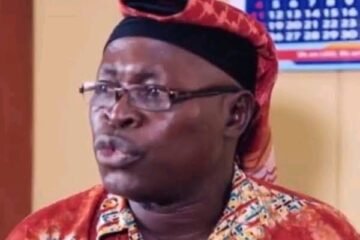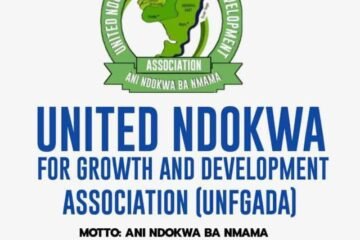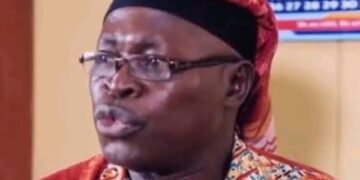By John Njoku
TO state that the Nigerian electoral processes have been such without a definition and that results from them usually herald crisis, is to confess the obvious.
These ugly realities make it conspicuous that when some world leaders remarked that elections in Africa is like war, they were making a clear reference to the unfortunate election culture of Nigeria, especially the type that has remained the lot of the nation since democracy resurfaced in 1999.

The reasons for these odd culture and absurd history are not unconnected to the crazy passion of politicians and other socio-economic stakeholders to always retain power and opportunities to the detriment of other citizens and the development of the nation.

Unequivocally speaking, the level of poverty and slow pace of growth and development in Nigeria presents a paradox of a very rich, yet too poor country characterised by an avalanche of political managers not zealous about the departure from the quagmire.

This bizzare statusquo has created an economy why critical sectors are crippled to fund the realm of politics where do-or-die ideologies are administered to all entrants lured by the irresistible attraction presented by the prosperity and bouyancy around and about it.
Too bad, everything in Nigeria shares in the funny influence from this realm, advantageously or disadvantageously. If you are in politics or supports the game or politicians, you may just be affected positively, but if you sing discordantly, you may just find yourself in an empty bandwagon endangered in everyway- this is because you will be termed enemy of the state that could be trailed by security operatives who are renumerated by that same realm.
All these are pointers to the truth that elections, politics and leadership induce the spirit of war and proceed to create widespread and far-reaching socio-economic ‘hostilities’ here.

As the Edo state election draws nigh, these indices are already enacting in the once peaceful heartbeat of the nation, a confluence town that leads to the rest of the south-south and south-eastern Nigeria; with economic potentials subdued and suppressed by advocates and promoters of this devilish culture.
Suddenly, enmity between families and friends have become the order of the day in Edo. And threats and intimidations resonate from official and unofficial quarters, cultists and killers are on rampage, hired by the gladiators who are bent on taking power and control of Edo state.
To substantiate this argument, in a few weeks from now, the entire Nigerian military and the police force will vacate other duty posts and relocate to Edo state, the latest bed and theatre of crisis, even when it is glaring that the nation has yet to adquately combat the hydra-headed menace of terrorism, kidnapping and armed robbery, killing the joy and peace of the citizens in the north and indeed everywhere. One is therefore forced to wonder if the same level of mad desperation invested in the quest to take Edo is injected towards socio-economic development- would she remain such that her people are scattered in Italy and other foreign nations engaged in demeaning and ignominious trades?
The impending election disaster about to result from the war-like election preparations (God forbid) will no doubt create a state of disharmony and distrust that will continue to heat up the Edo polity and break the fabric/bond of unity, the type that will favour the oligarchic usurpers parading the leadership space of Nigeria, exploiting the masses via the Nigeria version of divide-and-rule system, one of the many odds they borrowed from colonialism.
If disaster actually precipitates on Edo, post 2020 election, a situation like that in Imo state where the incumbent Governor now fights eradicate a disgraceful appellation from the opposition- “Supreme Court Governor”, may ensure. It will also lead to the disgusting and wasteful post election judicial wars facing some states of the federation, which also remain delusive distractions that facade the citizens from following the ineffectiveness of those in power. Or how else should one explain away the fact that half of the time and resources available for leadership and development are usually spent on meaningless post election battles. And unfortunately enough, another crisis will follow shortly when the next election peeps.
There is no gainsaying that the Edo election war will be supervised by authorities who will draft all military personnel there to quel what would have been averted if the dangerous culture had been institutionally discouraged hitherto.
To say the war culture of election in Nigeria is institutionalised is to stress the appropriate. Or how else could anyone educate the younger generation on how some persons who were labelled thieves can metamorphose through Nigeria’s special abracadabra to become choice candidates of political parties; how can one educate the youths that god-fatherism does not playout when the theatre of the absurd leading to a macabre dance has become their daily entertainment in Edo and beyond?


















